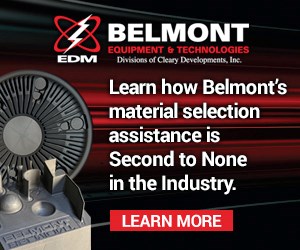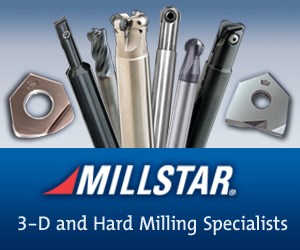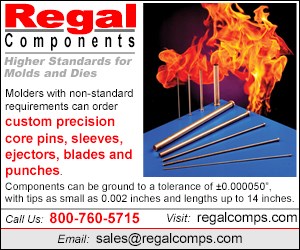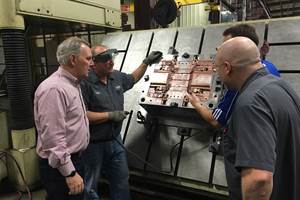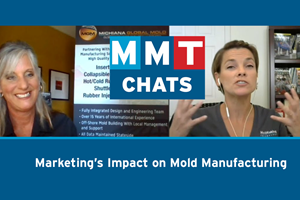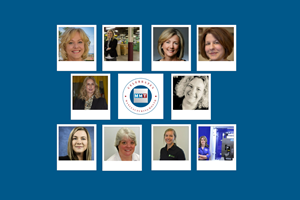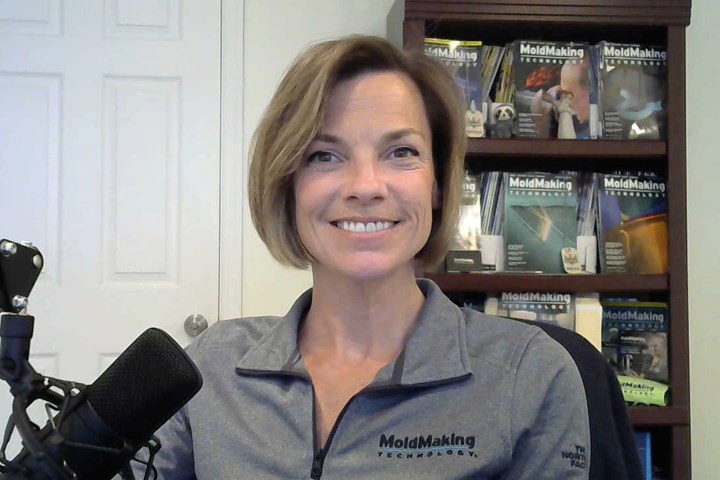
Here is a snapshot of this 20-minute discussion with Lacy Wise, host of the Advanced Manufacturing Industry Partnership Podcast where we dive into how clean and safe the moldmaking environment is and the career options available to our next generation.
Q: What types of procedures/protocols/equipment do you often see in plants and how would you rate their manufacturing environment?
A: Many mold builders follow lean manufacturing and the equipment itself is more automated—from mold design and machine programming to robotics. We also see improved data handling across the shop and supply chain, more machine monitoring, more lights-out machining, increased use 3D printing, remote tryout and servicing. And as a result of COVID primarily (although I believe COVID just accelerate these changes), shops are now implementing new ways to communicate, collaborate and learn too.
Q: Why is cleanliness a must?
A: Mostly because I still think people view U.S. mfg and moldmaking as dark, dirty and dingy so appearances matter to customers and to current and future employees, especially if we want to attract and retain next-gen moldmaking professionals.
Contamination can come from dust, hair, little pieces of plastic, particulates from ejected parts, initial gate separation from cold runners, peeled or shaved undercuts. Contamination from grease and release agents too so selection of lubricants for cleanroom applications is very important.
There are products to combat contamination such as components that function without creating friction, proper lubricants and solid maintenance practices, Hepa filters, hoods over molds to help filter particulates or mold components like black nitride (BN) ejector sleeves that have a precise, lubricious surface that does not require grease in cleanroom applications; slide retainers that roll/slide preventing friction; needle bearing locks to eliminate wear conditions which can cause contamination; these also reduce grease needed for injection molds stainless steel alignment locks designed for cleanroom and packaging applications.
Q: How does cleanliness help in other ways?
A: Definitely safety. A mold shop is fast-paced and constantly changing so safety is very important. Mold shops adhere and train to OSHA and other Safety standards, first aid and CPR, accident response. They have personal protective equipment (PPE) where required. They use warning signs and instructions to protect workers from potential mold area hazards, such as platen closing motion and machine ejector action, lock-out/tag-out for cleaning or repair, fork trucks, overhead cranes, machine specifications, and practices and devices for safe lifting, handling and storing of the assembled mold and mold sub-assemblies. Even electrical safety rules because many molds, hot runner molds, use electrical power.
There are many safety products for mold shops:
- Support pads to assist during mold assembly to help elevate and store heavy objects like molds.
- Lighting such as small, adjustable, swivel-type LEDs with magnets so they can be placed anywhere light is needed & adjusted to help see those sharp-corners on molds, inserts and components, for example.
- A big one for mold maintenance (disassembly, cleaning, repair, assembly) are intentionally designed & equipped toolroom benchs.
- And of course overhead hoist systems when working on mold repair for large, heavy tooling.
- Air ventilation systems to take out smell of burning plastic.
- Ergonomics too like the use of floor mats, spotting presses, and mold separators, devices/ipads/laptops on carts around the shop for easy access to information.
Q: What are some moldmaking career options?
A: Careers in moldmaking go beyond the production floor if that is something not of interest to someone considering mold manufacturing – there are designers, engineers, programmers, IT, data scientists, automation specialists, processing techs, sales, marketing, quality control, trainers, HR, inspection, R&D,
And we are by no means saying don’t go to college, we are just saying you do not HAVE to go to college to have a successful, fulfilling career. Some companies even pay for kids to go to college or training.
To listen to the entire podcast (only 20 minutes), visit: https://advmfgip.org/amip-podcast-episode-three/
Check out this MoldMaking Matters recruitment video!
Related Content
OEE Monitoring System Addresses Root Cause of Machine Downtime
Unique sensor and patent-pending algorithm of the Amper machine analytics system measures current draw to quickly and inexpensively inform manufacturers which machines are down and why.
Read MoreMMT Chats: Marketing’s Impact on Mold Manufacturing
Kelly Kasner, Director of Sales and Marketing for Michiana Global Mold (MGM) talks about the benefits her marketing and advertising, MGM’s China partnership and the next-generation skills gap. This episode is brought to you by ISCAR with New Ideas for Machining Intelligently.
Read MoreEditorial Guidelines: Editorial Advisory Board
The Editorial Advisory Board of MoldMaking Technology is made up of authorities with expertise within their respective business, industry, technology and profession. Their role is to advise on timely issues, trends, advances in the field, offer editorial thought and direction, review and comment on specific articles and generally act as a sounding board and a conscience for the publication.
Read MoreWomen Impacting Moldmaking
Honoring female makers, innovators and leaders who are influencing our industry's future.
Read MoreRead Next
Are You a Moldmaker Considering 3D Printing? Consider the 3D Printing Workshop at NPE2024
Presentations will cover 3D printing for mold tooling, material innovation, product development, bridge production and full-scale, high-volume additive manufacturing.
Read MoreHow to Use Continuing Education to Remain Competitive in Moldmaking
Continued training helps moldmakers make tooling decisions and properly use the latest cutting tool to efficiently machine high-quality molds.
Read MoreReasons to Use Fiber Lasers for Mold Cleaning
Fiber lasers offer a simplicity, speed, control and portability, minimizing mold cleaning risks.
Read More














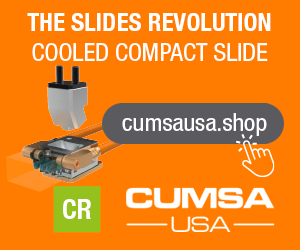


.png;maxWidth=300;quality=90)
